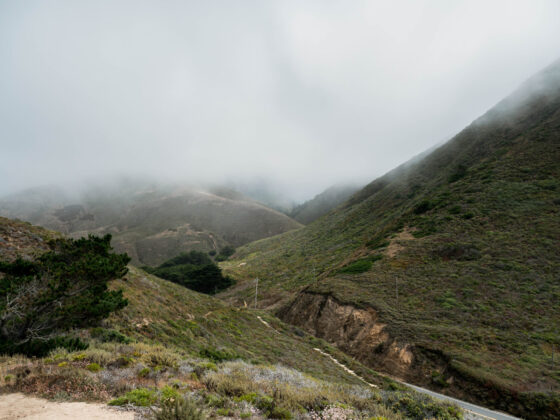As soon as you order a Vanilla Sweet Cream Cold Brew, the clock starts ticking for the barista wearing a green apron to make your drink quickly and correctly. We live in a transactional culture, so our interactions are largely based on how much we pay for something and how quickly we get that thing in return.
This makes it tricky to submit to and remember the kindness of God when things don’t go our way on our own timing. We buy into a lie that “payment” is our faithfulness and as long as we’re good, we should be rewarded. But, throughout the Bible, we see a culture based around agriculture rather than transaction. Growth takes time. Movement is based on seasons and weather patterns. God is never in a hurry.
In our culture, waiting is a nuisance. In Kingdom culture, waiting is a necessity.
We’ve grown accustomed to get what we want when we want it (thank you, DoorDash), which makes it alarmingly easy to believe the lie that God is holding out on you when his voice sounds silent or our season seems stagnant.
But God isn’t holding out on you. God has proved himself faithful to his character countless times, and his character is consistent, kind, and loving. If God feels silent in a response to your desires, or your growth feels hindered and God is seemingly to blame, you might find it helpful to read about the Israelites wandering in the wilderness. These people are part of your family line, after all, and might serve as a reminder that God’s people forgot his faithfulness in the midst of their waiting. And spoiler alert: God’s people are still forgetting his faithfulness in the midst of our waiting. We have a lot in common with Israel, and we have a lot to learn from them.
Let’s take some time to study the Israelites and their time in the wilderness—the in-between. I hope it’s an encouragement to your relationship with God and your time of waiting.
Part One
Jesus: Our Manna
Read Exodus 16:1-36; Numbers 11:4-9; John 6:35
A mere two months into their time in the wilderness, the Israelites were already longing to go back to Egypt. The land that made them slaves and from which God rescued them they were now longing for because they were fed up with waiting in the wilderness. We can be living a remarkable rescue story and still find something to complain about.
God provided manna for the Israelites to eat during their years in the wilderness. He gives detailed instructions on how they should collect the bread because he not only wants to provide for them, but he wants them to trust his provision in their waiting. The manna is the very tool that can teach them that God will continue to show up and sustain them.
In Numbers 11, the Israelites complain about this diet to their God who provided it. On the surface, they complained about the monotony of the unleavened bread they ate day after day, but a closer look at the text shows that they really longed for the pleasures of Egypt, from when they were slaves. The complaints of the Israelites are a rejection of God’s plans and provision.
It’s no coincidence that Jesus later called himself the Bread of Life. He is what we need on a daily basis, and he’ll continue to show up and sustain us. In our selfishness and blindness to our own slavery, it’s easy to long for the pleasures that defined our lives before our remarkable rescue. But, like manna was nourishment in the wilderness, Jesus is the true and better nourishment in our waiting.
- What is consuming your thoughts today? This week?
- God wants to hear from you. Take some time to cry out to him about your sadness or disappointment in waiting. But then, ask honestly if there are feelings, thoughts, or idols you need to repent for.
Part Two
The Holy Spirit: Our Tabernacle
Read Exodus 25:1-9; John 14:25-17; Matthew 28:19-20
The instructions to build the tabernacle were incredibly detailed because it was the dwelling place for a holy God. Remember the detailed instructions we read about in Exodus, too? Turns out that God’s boundaries lead us to his presence and provision. God’s boundaries mark our freedom.
Exodus 25:8 refers to the tabernacle as a sanctuary, which is a holy place, and it was made that way by God’s presence alone. The very fact that God instructed the Israelites to build the tabernacle (also called a temple) tells us that God wanted to dwell among his people during their time in the wilderness. There was a room in the center of the tabernacle called the Most Holy Place, which was the hot spot for God’s presence. Only the high priest could enter this room because the average Israelite wasn’t holy enough to enter into the presence of God.
Generations later, the presence of God left the Most Holy Place, put on flesh, and walked among us. His holiness could heal with his touch alone. And because of his life, death, and resurrection, his holiness became accessible to you and me. Jesus and his followers are called temples because we’re a dwelling place for the Holy Spirit, the presence of God. When we have a relationship with Jesus, we become the hot spot of God’s presence.
No one wants to feel alone in their waiting. And with the promise of the Holy Spirit, you don’t have to be. When you feel like the Israelites in the wilderness, you can hold on hope that God chooses to dwell among you. His presence is near.
- Take some time to recount the ways you’ve experienced God’s presence and provision in your season of waiting.
- How would you live differently if you really believed that God chooses to dwell among you in your waiting?
Part Three
Heaven: Our Promised Land
Read Exodus 14:5-14; Numbers 34:1-15; Joshua 3:7-17; Revelation 21:1-4
Until this point in the Bible, Israel knew Canaan was their inheritance, but the boundaries of the land had never been clearly set. In this speech to Moses, the Lord explains the boundaries of the land they had long been waiting for. In a sense, it might have finally started to feel real.
Waiting on God might feel like the Israelites waiting on their land inheritance. You know something is promised, but there isn’t a clear description of what it will look like or when it will come. The lack of clarity makes it easy to question if God really promised it at all.
God rescued Israel out of Egypt through Moses, and he led them into the Promised Land through Joshua. Someday, Jesus will return and lead us into Heaven, the true and better Promised Land. When Israel left Egypt, the Red Sea split and made a way for their remarkable rescue. When they reached Canaan, the Jordan River stopped flowing which allowed them to cross into their long-awaited home. Miracles bookended Israel’s time in the wilderness and miracles will bookend your season of waiting, too.
- What are you waiting on? How does it ultimately reflect your desires for Heaven?
- Take some time to consider what Heaven will be like. Then, journal a prayer of thanks to God for being a miracle worker, the creator of heaven and earth.
Image credit: Emilee Carpenter
Kathryn is an INFP, Enneagram four, a big fan of personality tests, a wife, manager, and wannabe-writer. Her truest identity, though, is rooted in her relationship with Jesus. Her mission is to love God, love people, and equip young women to do the same.






